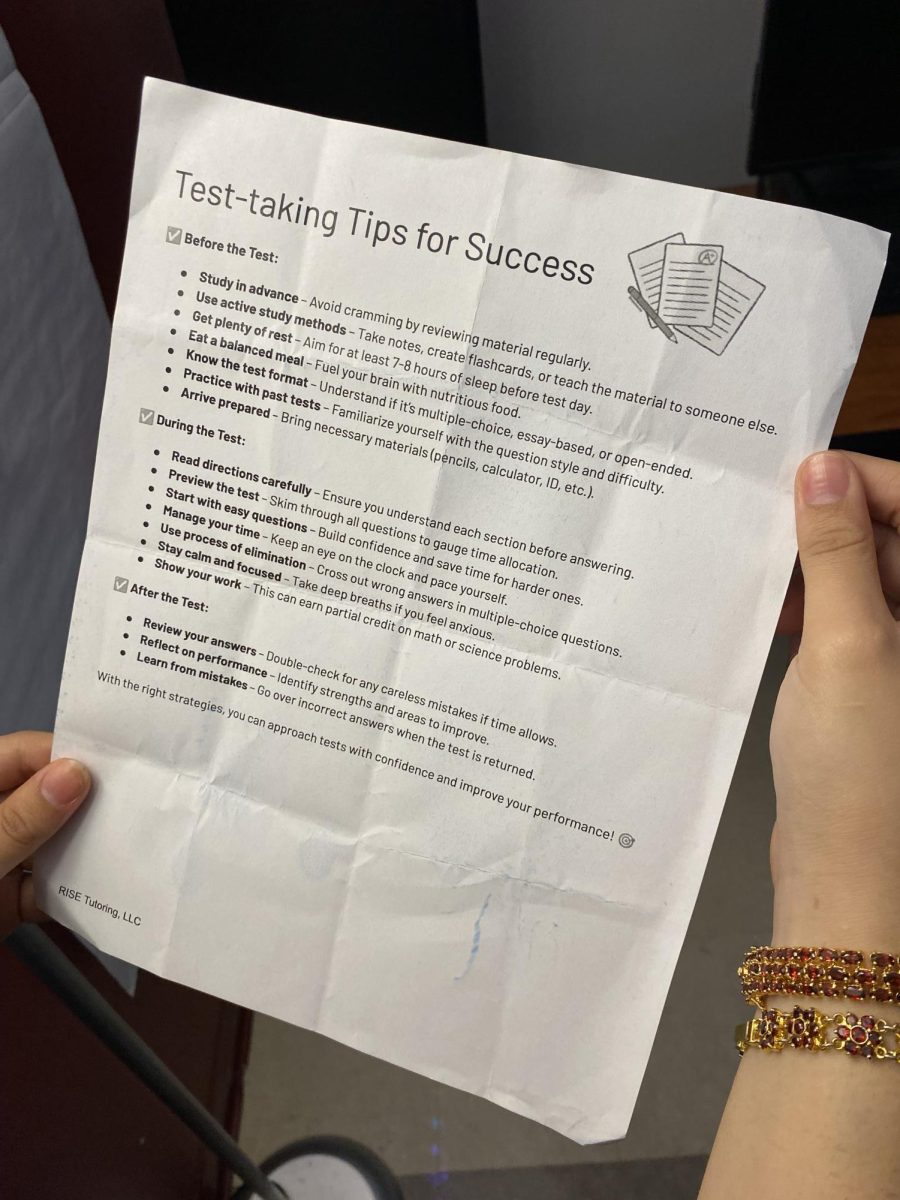The arrival of spring marks the beginning of STAAR testing for schools across Texas. The test has been around since 2012, replacing the TAKS test in 2013 and the TAAS test in 2003. These tests all share the same goal, which is to measure how much a student has learned throughout the school year by presenting questions relating to material the student was expected to learn.
Those who fail a test are required to receive additional academic support and may be required to retake the test at a later date. Generally, passing every STAAR test is also required to graduate high school, according to the Texas Education Agency.
With these high expectations, testing may appear intimidating to some students, especially those who don’t perform well under testing environments. Fortunately, there are ways to prepare for these tests to ensure everything goes smoothly.
Studying
Studying is an old but important tool needed to pass any exam. Studying can take many different forms, from reading your own notes before the test to reading textbooks related to the subject.
Study methods like reviewing flashcards have been claimed to “support active recall by creating neural pathways, which make it easier to call up information at a future date” by the University of Michigan.
In another paper published by the University of Michigan, it’s noted that taking and reviewing notes improves test scores. “Students who take notes score higher on both immediate and delayed tests of recall and synthesis than students who do not take notes.”
Although studying is recommended to be a frequent habit that should be part of a daily routine, studying even a day before the test can be beneficial.
The Texas Education Agency also provides previously administered tests in the form of practice tests at the STAAR Released Test Questions website.
Resting
To ensure you do your best on testing day, it’s important to get plenty of rest the day before the exam. Specifically, it’s important to sleep well, and go to sleep at a reasonable time.
According to the Centers for Disease Control and Prevention (CDC), getting enough hours of sleep, typically 8-10 hours for teens 13-17 years old, can help reduce stress and improve your mood, attention and memory. All of these things can be very beneficial in a testing environment.
Ways to get a good night’s sleep include keeping your bedroom quiet and free of distractions, keeping your room at a comfortable temperature, avoiding large meals and caffeine before bed and turning off any electronics at least thirty minutes before going to sleep.
Eating properly
It’s important to eat the morning before an exam, lunch typically takes place after every student on campus is done testing, which typically takes a while. Besides, being hungry can make it significantly harder to focus on the test in front of you, especially if you struggle to remember important information.
Water is universally known to be a very important factor in our lives and not drinking enough of it can cause dehydration. Which can lead to unclear thinking that will negatively affect you under testing conditions, so it’s important to drink water before an exam.
Additionally, students are allowed to bring their own small snacks and water to eat during testing, as long as they don’t share it with other students while the test is ongoing. The items must also not cause a disturbance in the testing environment, and must remain under the student’s desk.
Teacher suggestions
Judson High School staff also know ways for students to prepare for testing, English academic trainer Jasmine Walkes wishes for students to remain calm during exams. She claims, “It’s just a test, it’s not anything different than you’ve been doing in your other classes. It does not measure your intelligence. It measures a snapshot of what you’re able to learn, apply and regurgitate.”
Social studies academic trainer Isabel Canez also shares this sentiment, claiming “one of the important things to remember is that they [STAAR tests] don’t define the student.”
She also states, “the best way to deal with testing is to just take what you’ve learned and apply it to the test.”
STAAR testing can be intimidating for many students, which makes it all the more important to prepare accordingly. Testing doesn’t have to be stressful, there are teachers, study methods and tools available to make testing easier and improve your score, as long as you are willing to put in the effort to use them.
STAAR testing takes place all throughout April. For Judson High School, English 1 tests on Tuesday, April 8, English 2 tests on Wednesday, April 9, Biology tests Tuesday, April 15, U.S. History tests on Wednesday, April 16 and Algebra 1 tests on Wednesday, April 23.
Judson High School asks that all of their students plan accordingly, arrive at school on time and bring fully charged Chromebooks.

